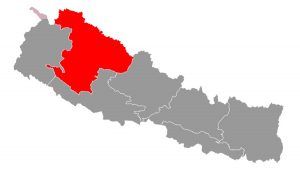
Foreign Trade Continues to Struggle, Shrinks by 2.55% in First 10 Months

Nepal’s foreign trade remains sluggish, showing no signs of picking up pace since the beginning of the current fiscal year. According to the latest data released by the Department of Customs on Monday, the country’s total foreign trade size shrank by 2.55% to Rs 1,429.53 billion in the first 10 months of fiscal year 2023/24 (till mid-May), compared to Rs 1,466.22 billion in the same period of the previous fiscal year.
The data reveals that imports fell by 2.39% to Rs 1,303.35 billion, down from Rs 1,335.32 billion in the same period last year. Exports also decreased by 3.61%, with the country exporting goods worth Rs 126.17 billion, compared to Rs 130.90 billion in the previous fiscal year.
This decline has resulted in a shift in the composition of Nepal’s foreign trade. The share of exports in total trade shrank to 8.83% in the review period, slightly down from 8.93% in the first 10 months of 2022/23. Conversely, the share of imports increased to 91.17%, up from 91.07% in the same period last year.
Out of 168 trading partners, Nepal managed to achieve a trade surplus with only 34 countries during this period. The highest trade surplus was with Denmark at Rs 385.84 million, followed by Afghanistan (Rs 262.01 million) and Norway (Rs 113.66 million). However, Nepal faced significant trade deficits with major partners, suffering the highest deficit with India at Rs 1,177.18 billion, followed by China (Rs 729.70 billion) and the UAE (Rs 238.55 billion).
India remains Nepal’s largest trade partner. Nepal imported goods worth Rs 1,303.35 billion from India while exporting goods worth Rs 126.17 billion to the southern neighbor. Similarly, imports from China amounted to Rs 815.72 billion, with exports to China totaling Rs 86.02 billion.
Petroleum products topped the list of imports, with Nepal importing diesel, petrol, and liquefied petroleum gas worth Rs 218.48 billion. Other major imports included raw materials for steel industries and smartphones. On the export front, readymade carpets were the largest earner, generating Rs 8.79 billion, followed by black cardamom (Rs 6.91 billion) and palm oil (Rs 5.62 billion).
The continued decline in both imports and exports underscores the challenges facing Nepal’s foreign trade sector, which has yet to recover its momentum. The government and stakeholders are urged to explore strategies to bolster trade and address the underlying issues affecting the sector’s growth.














Comments